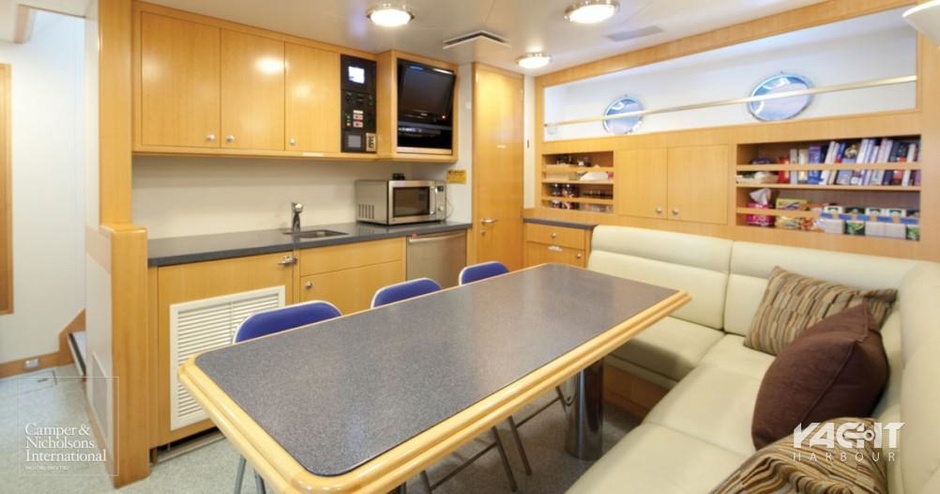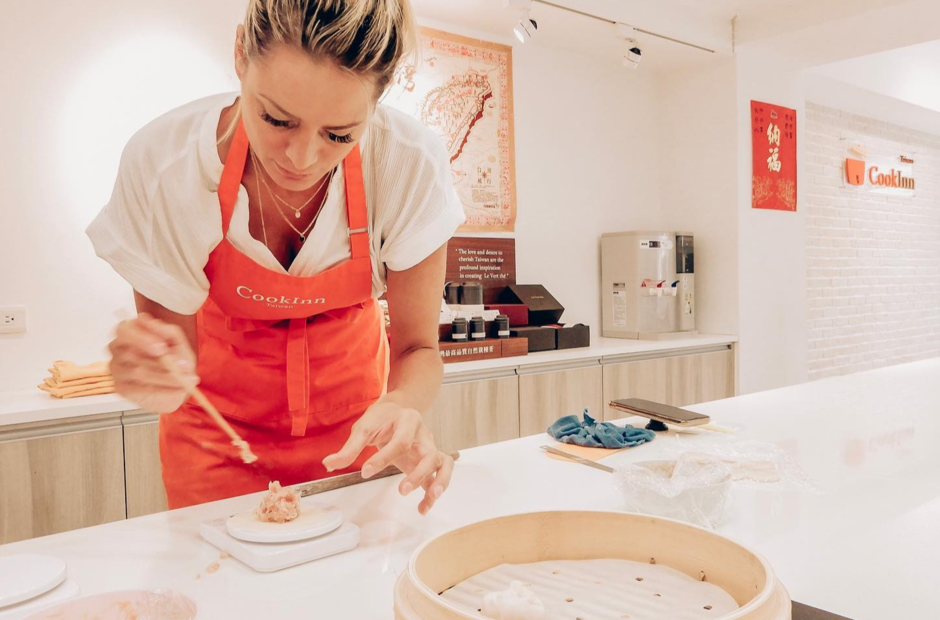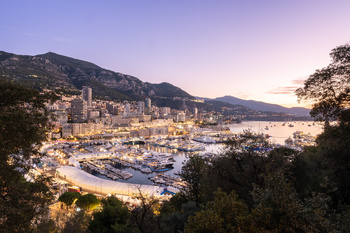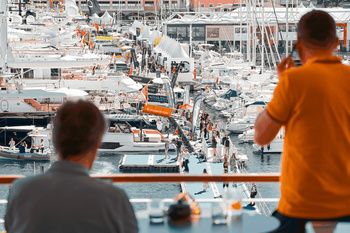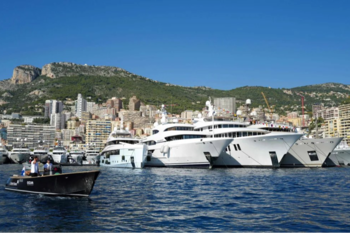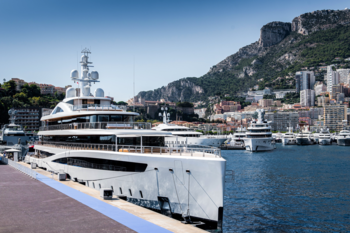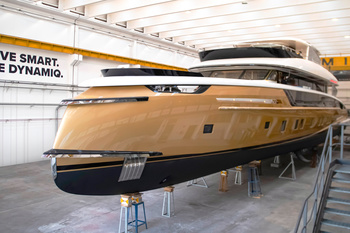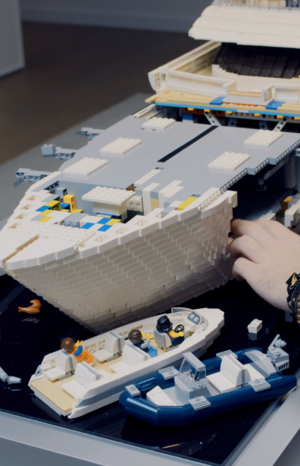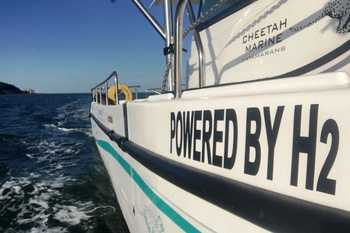A hobby is something you want to devote all your free time to. Most of us are only jealous of those lucky people who have managed to combine hobbies with a professional occupation. New Zealand's Rachel Cunningham is one of the few people who have managed the impossible.
Her love of travel has been combined with an innate talent for cooking and she has 115 countries and over 5 years experience on the world's most luxurious and beautiful yachts.
In her recent interactive interview at Reddit, Rachel answered many of the most tricky questions about what it's like to be a yacht chef.

Cook is forced.
Someone is learning long and hard to be a chef, but in Rachel's case it all worked out by chance. As she confesses, she didn't even dream of working on a yacht, but even of cooking. Her younger brother is a professional cook, but «you»can't get him on a boat. Having tried a number of professions, the New Zealand woman was left almost without money, but luck and determination helped to achieve something that many people only dream about. However, as it turns out, even on the most luxurious yachts, the life of the crew remains hard and often even ungrateful.
Q: Tell me about how you became a yacht chef. Did you go to cooking school?
- I didn't! I was 30, and I tried to find myself in Europe. I was working then as a train driver (that's another story), recently quitting as a travel agent. Then I heard about yachts and thought: «Why, it's better than going home to winter Melbourne!» So I boarded a plane to Spain and took the necessary courses. I wasn't offered a job right away, because the competition is huge. In general, I was thinking of becoming a flight attendant because I didn't know that I could become a chef without formal training. But I was lucky: it was winter and I was invited to Niki Lauda's boat. When the season was over, a captain came up to me and asked me to stay and continue cooking for Mr. Lauda. I took a chance, even if I didn't know how to do anything. But I did it!
In fact, I didn't know about the whole industry until I decided to try something new. It's not my dream, just a curious experience that seemed like a good alternative to what I used to do.
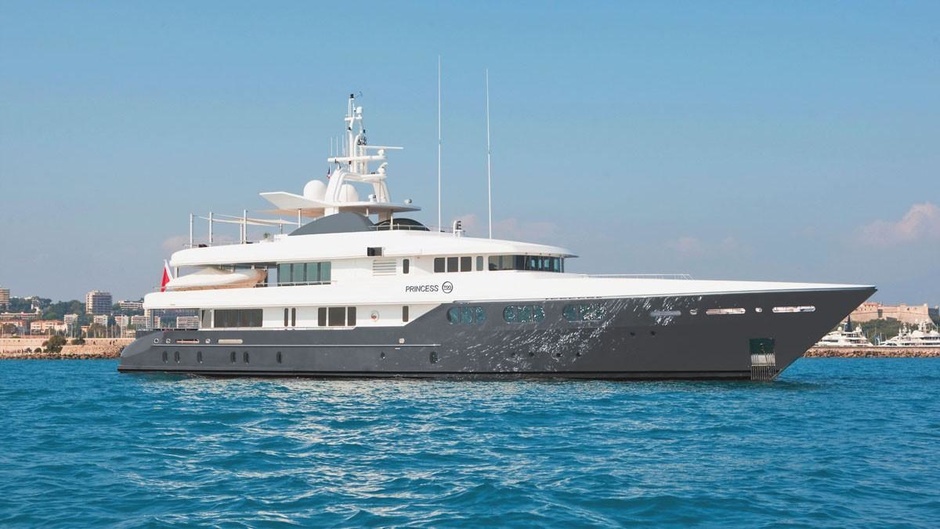
Friendly racers and stingy boat owners
Q: Tell us about the most enjoyable boat owner you've ever worked with?
- To be honest, it's Nicky Louda. He was charming, and his family were very nice people. He used to make his own coffee in the morning. He didn't want anybody to serve him. All his thoughts were about family.
This revelation can surprise many motorsport enthusiasts. Three-time world champion Nicky Lauda - one of the most famous Formula «1» drivers in its history - was known for his German straightforwardness and even blunt behavior at the helm of the car. He seemed to be a cold and alienated man, but many who spoke to the Austrian personally could confirm that he himself was a very pleasant and courteous man. Rachel's experience confirms that.
Unfortunately, Nicky died May 20 this year at the age of 70. In recent years he had spent a lot of time aboard Feadship's 47.55m Princess Too, but Rachel had worked on his previous yacht.
Q: Tell me about the most generous boss you've ever worked with.
- That's an interesting question. Nobody slipped me any big bundles of money, so it's not about «financial» generosity. But I do remember an American family who rented a boat for two weeks. It was awesome. The kids were restless, but very polite, like their parents. They were the notorious «American dream» for me. Even the nanny was charming - we're Facebook friends. When we said goodbye, it was sad. I have no idea where they got their money from. There was a rumor that they were growing peas.
Q: How much do you usually get paid?
- It all depends on the boat. Somebody pays great, and somebody pays the little things. Depends on the management company. Someone beats off a year's salary in six months, and someone works seven days a week for 11 months and earns 1500 euros a month. Everything is different.
As Rachel confesses (and other bosses agree), 1,500 a month is not serious money, but many crew members find themselves at a disadvantage because of their nationality. While the average monthly amount is €2400/€2800, many owners try to undercut this amount by discriminating against people on the basis of their nationality.
«EUR 1500 is the salary of a junior sailor on a lousy yacht. The real figure on a normal boat is from €2400/€2800. And in general, the average yachting chief receives from about 4 thousand euros».
Q: Tell me about how your day goes. How long does it take to cook? How much free time does it take to cook?
- I get up, usually at six in the morning. 15 minutes before the start of the day, I take my eyes off the phone and get up. Then I work until the break, around 3:00. That's when you can take a shower, take a nap or go online. And then there's work. After dinner, we're all cleaned up, and at 10 p.m., we're off. However, it's different everywhere - we only lie down at 2 a.m.

Q: How much time do celebrities usually spend on board? And what do you do when they're gone?
- That's a good question! A lot of people (including guests) think that when they're not on board, we all rest. Of course we don't. A yacht is a bottomless pit for burning money.
You can go crazy calculating the cost of maintaining it! The lacquering, carpets, tenders... it's true that everything in the galley is quiet; we use this time to clean the kitchen, refrigerators, storerooms.
Guests can stay on the boat as long as they want - from 50 weeks a year (these people live on board, it sounds terrible!) to one or two weeks. Mostly guests are on a boat from 4 to 8 weeks.
A bachelor's life
Q: How hard is it to maintain a relationship with a job like this? Who would you call your best friends?
- Relationships? It's not even negotiable. I've given up all hope of finding someone a long time ago.
My best friends are the people I knew before I started working on boats. There are some colleagues, of course, but there is an old but very true joke: «Let's be friends until one of us quits or is fired». When you say goodbye to the boat, you say goodbye to your comrades.
The industry has set me up with a lot of people, but they're all working in the sweat of their faces now.
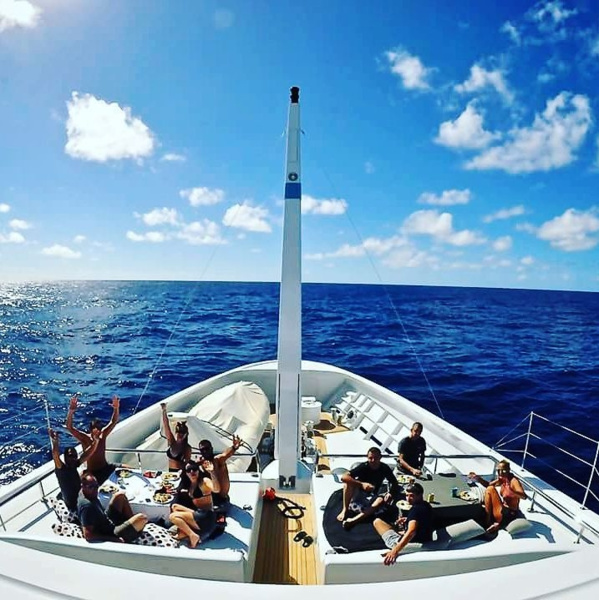
Q: How often do service romances happen?
- Very often. As long as we're on the high seas, there's nothing else left. We spend many weeks only in each other's company. Of course, reality shows like «Below Deck» exaggerate a lot, but there's a lot of truth. Short-term affairs happen a lot, but there are also relationships for many years. I know people who are now married and living a normal life.
Q: About your personal life. Are you satisfied with it - especially with your age?
- Personal life - what is it anyway? It's a complete failure in that respect.
Men my age can't settle down, and everyone else just can't understand what I do. I tell them: «I work»and they tell me: «Okay, but you're free after work/weekend?» I say: «What? No, I work Monday to Sunday, no weekends!»
It's a life beyond their understanding.
Q: How often does it happen that an owner or a distinguished guest falls in love with a crew member?
- It's all fantastic. It only happens in Hollywood movies.
- How often do the owners invite you all to relax together? Or is contact kept to a minimum?
- It all depends on the guests.
The smaller the boat, the more «normal» the guests.
They like to socialize and have fun together. I went camping with my guests, we sailed and drank together, but the bigger the boat, the more formal it gets. Small yachts are more and more «peculiar», but bigger boats have bigger budget and food is more interesting.
- Ever had a guest walk naked on a yacht?
- No! If they've done that, it's not in the galley.
- I've heard stories about how millionaires generously tipped everyone. Does it really happen? Did you ever get a particularly generous tip?
- Personally, I don't. I have always flown past generous tips. But I do have friends who have fought off their annual salary for a three-week charter.
The fatigue of sea life and the peculiarities of open sea cuisine...
The more questions, the more obvious it becomes that the job of a chef aboard a superyacht is not as good as it may seem. On learning about Rachel's success, many people immediately began to admit to black envy. But the imaginary luxury life and sea idyll are far from reality. Rachel has no close friends and no family. She's 35 years old, but she still has no family. And while people are complaining about mortgages and dreaming of exchanging the cramped walls of her unloved office for the vast oceans, Cunningham is thinking about how to get her life back to «normal». According to her, she's sacrificed a lot for what she has. She's only happy to spend all her money on travel and food. But in her words, it feels if not disappointed, but doubtful about what lies ahead. She warns you not to think that working on a yacht is an easy way to touch luxury. Not at all.
- Anyone who works on a yacht plows in the sweat of their face. Junior sailors lick toilets and peel floors with toothpicks. Deck crew clean the hull of the boat in any weather. Engineers have a huge responsibility.
No matter how much the crew gets, they deserve that money. It's not an easy job.
«I don't own a yacht. It's just an office»to me.

Q: I have an uneven stove, which makes it difficult when I try to cook something. How difficult are the conditions on a yacht when everything is moving around?
- I work on large white yachts that aren't designed for risky sailing. If the weather is bad, the boat will stay in port. The owners don't want to damage their property, so the shake is kept to a minimum. However, it's not without mishaps: not so long ago I seriously burned my hand with oil.
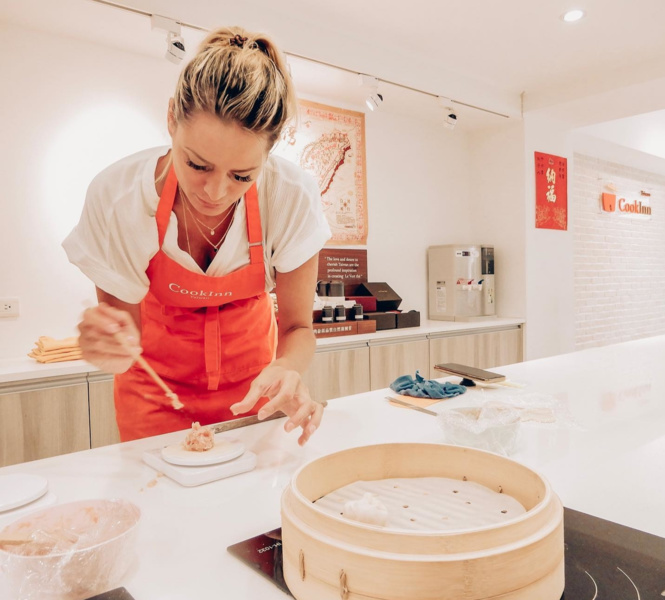
- Did anyone order something particularly strange from you?
- There was a guy from South Africa on our team, and he loved fried bananas. It's a little weird for me. A lot of people, both guests and ourselves, are proud to say they don't eat gluten or consider themselves vegans. Because it's fashionable nowadays. But most of the time, they'll have a hamburger on both cheeks. It's annoying when one of our guests shows off, but I'm just amused.
Personally, I like to make sushi, probably because I like to eat it.
And people have all kinds of preferences. For example, there was this boss who insisted I serve omelets with overcooked onions.
It was weird and, frankly, nasty. It wasn't good at all. But other than that, he had perfectly normal tastes - I don't know why he did it with onions.
- Tell me about what you do when you're asked for «something special».
- «Surprising me» usually means one thing: Do what I always ask, but make it look different. Usually surprise guests don't like surprises.
- Wait, so you cook for guests as well as for the whole crew? But the food is different, isn't it? Or does it all depend on the size of the boat? I work on a research boat, and we can't afford that...
- I would love to work on a research vessel - it sounds very interesting. Our team eats easier than the guests. In fact, the meat is the same as you can buy at the supermarket.
No lobsters or caviar, at least not until the season's over. Then you can clean up after the guests, too. This week we are always looking forward to it!
On small yachts I cook for everybody, and on large boats there is a special cook for the crew only.
There are usually two types of meat, two salads and something as a bonus, like a vegetarian dish. Most often I do Asian cuisine: fresh herbs, rice, curry, sushi, dishes made of raw fish. And of course burgers with buns of my own pasta, steaks. There's a wide variety of food on board, and you have to be able to do absolutely everything.
- Of all the countries you've seen, which one is your favourite?
- That's a tough question. Trinidad and Tobago, the Cook Islands, South Korea, Albania, Mozambique and Nepal all come to mind. But I remember first of all the people there, how cool they were! But in general, the answer to this question will change depending on the mood and the food you want to eat. As for New Zealand, I grew up there, but I don't want to go back at all. It's great for tourists, but I don't advise anyone to spend their childhood there...
- Which one's the most unloved?
- Usually I tell «Haiti»right away, but she deserves a second chance. We should go back and see what's changed.
Cambodia and Vietnam were also on that list. I couldn't wait to leave. I swore I'd never come back. And then I came back and I honestly fell in love with these places. Absolutely not to dirt the country after one visit.
- Why do chefs love Thailand so much?
- Great food, friendly people and cheap alcohol.

- What's the most popular food for rich owners?
- Pasta. Always pasta! It's easier to make, but everyone loves it. American guests order pasta, hamburgers and pizza. And fries, of course. There aren't many of those. Healthier food is becoming more popular now.
Guests share their taste preferences in advance - it helps to plan the menu in advance and order the necessary ingredients.
- Tell us about the most expensive dish you've ever served.
- Probably just a steak.
- What's the duty on board that you don't particularly like? The team has to clean up all the time, did you have to help?
- No, I only work in the galley. A lot depends on the yacht, though. On small boats, everyone helped as much as they could. I'd help the guys on deck with the cleaning, and they'd come in and take out the garbage, like. But we were all trained for different tasks. I won't climb on the mast and clean the hull because I wasn't prepared for it. Likewise, no one will let the sailors near the boss's eggs.
Fighting for an inclusive and sustainable industry...
When we think of chefs, we think of men. Any yacht enthusiast will confirm that most of the galleys aren't women at all. This has been changing lately, but maybe not fast enough. According to Rachel, often the choice depends not only on professional training or personal qualities, but also on the location of the cabins.
- Does the yacht crew think about ecology, how the industry affects it?
- Yes, they do! All the time! Different yachts have their own way of approaching this issue. Someone monitors the amount of plastic on board, someone makes sure there's as little waste as possible. We go ashore and clean up the garbage. Some boat owners let their boats be used for humanitarian purposes.
When it comes to food, we try not to throw anything away without needing it. For example, you can cut un-eaten sausages and put them in pasta the next day, or in frittata.
We have a lot of food, but that doesn't mean we can throw it away.
- How does the team stay?
- The cabins are divided by gender, although couples can live together. Each yacht has its own rules; somewhere the cabins are large and somewhere tight. But in the cabins we sleep, and nothing else - the rest of the time is devoted to work. We have a large dining room for the crew, where we can eat.
